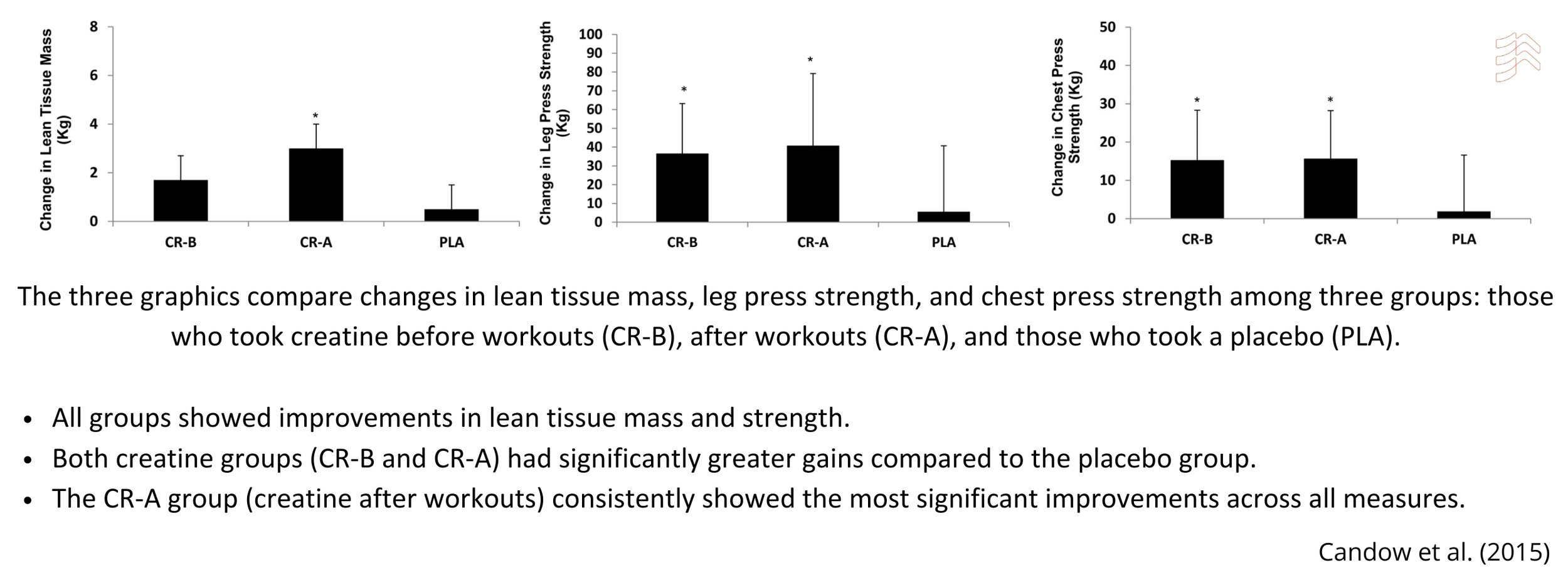Creatine: What Science Says About Its Emerging Health Benefits by Laura Velasco
Creatine is widely known for its role in enhancing athletic performance, but recent research is uncovering a range of emerging health benefits beyond the gym. Creatine is a naturally occurring compound stored in our muscles and used as a quick source of energy, particularly during high-intensity exercises. While athletes and bodybuilders have long used creatine to boost strength and muscle mass, its benefits now extend to areas like brain health, aging, and recovery from injuries.
By Laura Velasco, PT
When we think of creatine, we usually picture bodybuilders and athletes. However, recent research highlights that creatine may offer benefits beyond muscle building. It has been associated with supporting brain health, mental well-being, and even immune system function. Let’s explore what the latest research says!
Brain Health
The brain requires substantial energy to function properly, particularly for tasks like memory and clear thinking. Creatine, naturally produced by the body and found in foods such as meat and fish, contributes to this energy supply. Research suggests that increasing creatine levels through supplementation may have a positive impact on memory and cognitive function. (1) Although some studies indicate potential memory improvements in older adults, results have been mixed, and factors like age and dosage seem to play a role. (2) Given the increasing prevalence of conditions like Alzheimer’s disease, ongoing research into how creatine might support brain energy levels and cognitive function is of significant interest. (3)
Mental Well-Being
There is some evidence that low creatine levels in certain brain regions, such as the frontal lobe, may be linked to mood disorders, including depression and anxiety. Some studies suggest that increasing creatine levels through supplementation might help alleviate these symptoms. While more research is needed to fully understand how creatine interacts with brain neurochemistry and to determine the factors that influence its effectiveness, early findings are promising. (4)
Supporting Your Immune System
Emerging research suggests that creatine supplementation may also play a role in enhancing immune system function. A recent study focused on the effects of creatine on macrophages—these are the immune cells that fight infections. They found that creatine increased ATP production in macrophages (it gave them more energy), potentially improving their ability to combat infections and target tumors. While this research is still in the early stages, it opens up intriguing possibilities for creatine’s role in immune health. (5)
Benefits for Older Adults
Creatine’s potential benefits extend beyond athletes, as recent studies indicate it may also support the health of older adults. For instance, research by Candow et al. explored the combination of creatine supplementation and resistance training in individuals over 50. The study found that those who took creatine experienced greater gains in muscle mass and strength compared to those who took a placebo, particularly when creatine was consumed after workouts. (6)
Additionally, a recent meta-analysis (this is a big review where scientists look at the results of many different studies on the same topic) by Forbes et al., looked at several studies on creatine use in older adults and found that when creatine is used along with resistance training, it consistently helps improve muscle mass and strength. This suggests that creatine could be a helpful way to keep muscles strong as we age. (7)
The Bigger Picture
Creatine appears to offer benefits that extend beyond athletic performance. Research confirms its use for muscle maintenance when combined with resistance training and suggests that it may support brain health, mental well-being, and immune function. As studies continue to explore these potential benefits, creatine is becoming an area of increasing interest within the scientific community. Staying informed about the latest research can help individuals make well-informed decisions about their health.
References:
1. Prokopidis, K., Giannos, P., Triantafylidis, K. K., Kechagias, K., Forbes, S. C., & Candow, D. (2022). Effects of creatine supplementation on cognitive function of healthy individuals: A systematic review and meta-analysis of randomized controlled trials. Nutritional Reviews.
Candow, D. G. (2023). "Heads Up" for Creatine Supplementation and its Potential Applications for Brain Health and Function. Nutrients.
Smith, R. N. (2023). Creatine as a Therapeutic Target in Alzheimer's Disease. Journal of Alzheimer's Disease.
Smith, R. N., Agharkar, A. S., & Gonzales, E. B. (2020). A review of creatine supplementation in age-related diseases: More than a supplement for athletes. F1000Research, 9, 222.
Peng, Z., & Saito, S. (2021). Creatine supplementation enhances anti-tumor immunity by promoting adenosine triphosphate production in macrophages. Journal of Immunology, 206(4), 875-886.
Candow, D. G., Vogt, E., Johannsmeyer, S., Forbes, S. C., & Farthing, J. P. (2015). Strategic creatine supplementation and resistance training in healthy older adults. Applied Physiology, Nutrition, and Metabolism, 40(999), 1-6.
Forbes, S. C., Candow, D. G., & Farthing, J. P. (2021). Meta-analysis examining the importance of creatine ingestion strategies on lean tissue mass and strength in older adults. Nutrients, 13(1), 191.


